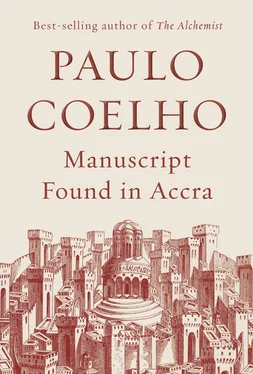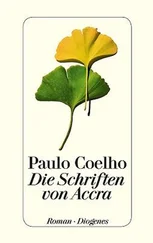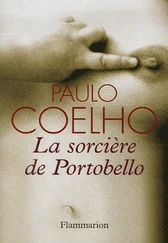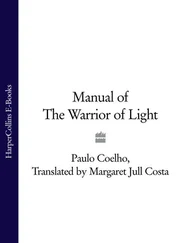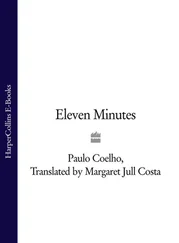The Copt is a strange man. As an adolescent, he decided to leave his native city of Athens to go in search of money and adventure. He ended up knocking on the doors of our city, close to starvation. When he was well received, he gradually abandoned the idea of continuing his journey and resolved to stay.
He managed to find work in a shoemaker’s shop, and—just like Ibn al-Athir—he started recording everything he saw and heard for posterity. He did not seek to join any particular religion, and no one tried to persuade him otherwise. As far as he is concerned, we are not in the years 1099 or 4859, much less at the end of 492. The Copt believes only in the present moment and what he calls Moira—the unknown god, the Divine Energy, responsible for a single law, which, if ever broken, will bring about the end of the world.
Alongside the Copt were the patriarchs of the three religions that had settled in Jerusalem. No government official was present during this conversation; they were too preoccupied with making the final preparations for a resistance that we believe will prove utterly pointless.
“Many centuries ago, a man was judged and condemned in this square,” the Greek said. “On the road to the right, while he was walking toward his death, he passed a group of women. When he saw them weeping, he said: ‘Weep not for me, weep for Jerusalem.’ He prophesied what is happening now. ‘From tomorrow, harmony will become discord. Joy will be replaced by grief. Peace will give way to a war that will last into an unimaginably distant future.’ ”
No one said anything, because none of us knew exactly why we were there. Would we have to listen to yet another sermon about these invaders calling themselves “crusaders”?
For a moment, the Copt appeared to savor the general confusion. And then, after a long silence, he explained:
“They can destroy the city, but they cannot destroy everything the city has taught us, which is why it is vital that this knowledge does not suffer the same fate as our walls, houses, and streets. But what is knowledge?”
When no one replied, he went on:
“It isn’t the absolute truth about life and death, but the thing that helps us to live and confront the challenges of day-to-day life. It isn’t what we learn from books, which serves only to fuel futile arguments about what happened or will happen; it is the knowledge that lives in the hearts of men and women of good will.”
The Copt said:
“I am a learned man, and yet, despite having spent all these years restoring antiquities, classifying objects, recording dates, and discussing politics, I still don’t know quite what to say to you. But I will ask the Divine Energy to purify my heart. You will ask me questions, and I will answer them. That is what the teachers of Ancient Greece did; their disciples would ask them questions about problems they had not yet considered, and the teachers would answer them.”
“And what shall we do with your answers?” someone asked.
“Some will write down what I say. Others will remember my words. The important thing is that tonight you will set off for the four corners of the world, telling others what you have heard. That way, the soul of Jerusalem will be preserved. And one day, we will be able to rebuild Jerusalem, not just as a city, but as a center of knowledge and a place where peace will once again reign.”
“We all know what awaits us tomorrow,” said another man. “Wouldn’t it be better to discuss how to negotiate for peace or prepare ourselves for battle?”
The Copt looked at the other religious men beside him and then immediately turned back to the crowd.
“None of us can know what tomorrow will hold, because each day has its good and its bad moments. So, when you ask your questions, forget about the troops outside and the fear inside. Our task is not to leave a record of what happened on this date for those who will inherit the Earth; history will take care of that. Therefore, we will speak about our daily lives, about the difficulties we have had to face. That is all the future will be interested in, because I do not believe very much will change in the next thousand years.”
Then my neighbor Yakob said:
“Speak to us about defeat.”
Does a leaf, when it falls from the tree in winter, feel defeated by the cold?
The tree says to the leaf: “That’s the cycle of life. You may think you’re going to die, but you live on in me. It’s thanks to you that I’m alive, because I can breathe. It’s also thanks to you that I have felt loved, because I was able to give shade to the weary traveler. Your sap is in my sap; we are one thing.”
Does a man who spent years preparing to climb the highest mountain in the world feel defeated when, on reaching that mountain, he discovers that nature has cloaked the summit in storm clouds? The man says to the mountain: “You don’t want me this time, but the weather will change and, one day, I will make it to the top. Meanwhile, you’ll still be here waiting for me.”
Does a young man, rejected by his first love, declare that love does not exist? The young man says to himself: “I’ll find someone better able to understand what I feel. And then I will be happy for the rest of my days.”
In the cycle of nature there is no such thing as victory or defeat; there is only movement.
The winter struggles to reign supreme, but in the end is obliged to accept spring’s victory, which brings with it flowers and happiness.
The summer would like to make its warm days last forever, because it believes that warmth is good for the Earth. But, in the end, it has to accept the arrival of autumn, which will allow the Earth to rest.
The gazelle eats the grass and is devoured by the lion. It isn’t a matter of who is the strongest, but God’s way of showing us the cycle of death and resurrection.
And within that cycle there are neither winners nor losers; there are only stages that must be gone through. When the human heart understands this, it is free and able to accept difficult times without being deceived by moments of glory.
Both will pass. One will succeed the other. And the cycle will continue until we liberate ourselves from the flesh and find the Divine Energy.
Therefore, when the fighter is in the ring—whether by his own choice or because unfathomable destiny has placed him there—may his spirit be filled with joy at the prospect of the fight ahead. If he holds on to his dignity and his honor, then, even if he loses the fight, he will never be defeated because his soul will remain intact.
And he will blame no one for what is happening to him. Ever since he fell in love for the first time and was rejected, he has known that this did not put an end to his ability to love. What is true in love is also true in war.
Losing a battle or losing everything we thought we possessed will bring us moments of sadness. But when those moments pass, we will discover the hidden strength that exists in each of us, a strength that will surprise us and increase our self-respect.
We will look around and say to ourselves: “I survived.” And we will be cheered by our words.
Only those who fail to recognize that inner strength will say, “I lost,” and be sad.
Others, even though they were defeated and feel humiliated by the things the winners are saying about them, will allow themselves to shed a few tears but will never succumb to self-pity. They know that this is merely a pause in the fighting and that, for the moment, they are at a disadvantage.
Читать дальше
Конец ознакомительного отрывка
Купить книгу
